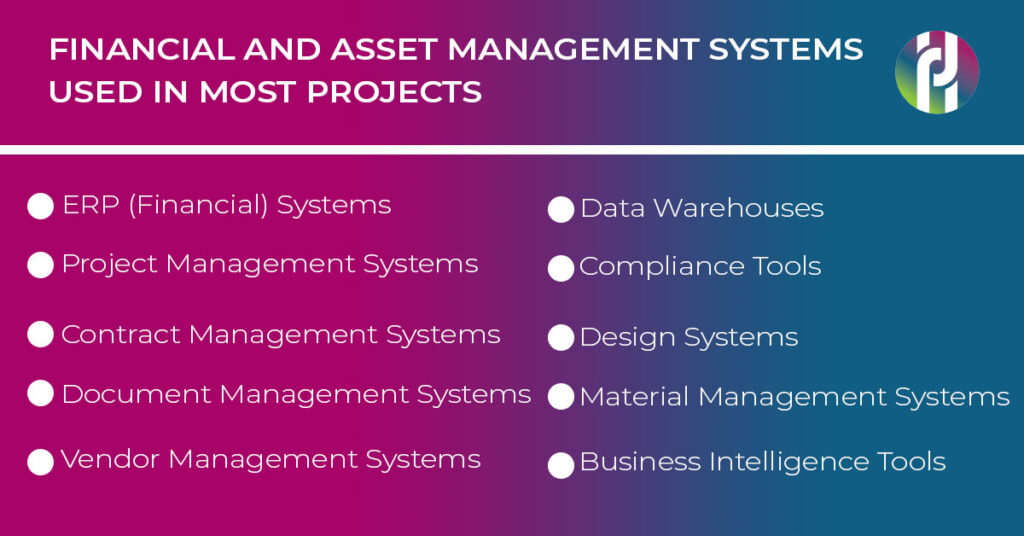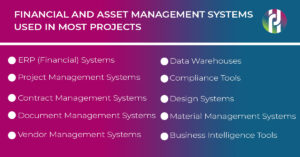March 28, 2023
Requis’ API Eliminates Construction Project and Supply Chain Risks
The construction industry lost $1.84 trillion due to insufficient data used in decision-making. Requis’ API creates a digital bridge between financial, asset management, and procurement technologies used by energy and resource operators and engineering and construction companies.
The API transfers information through the Requis platform for use among its users and other connected applications.

Why use APIs for supply chain and asset management
Construction projects continue to witness increased labor and equipment costs and schedule overruns. As a result, companies are expanding their digital footprint and bridging data silos to connect multiple systems with accurate information.
Linking individual sites and users enables information and data transparency. With clear communication, energy and resource operators and engineering and construction companies can:
- Maintain safe operations
- Incorporate sustainability goals,
- Cut costs through innovative digital technologies.
According to an FMI Corp. report, the construction industry lost $1.84 trillion due to inaccurate data used in decision-making. Furthermore, 14% of the project actions demanded rework, contributing an additional $88.69 billion in costs.
Consequently, energy & resources operators and engineering and construction companies require a new approach to eliminate data silos and reduce project risks.
Requis has released an API to assist its users in connecting different projects and operational software and applications to meet this growing need. In addition, the API aids in establishing value-added communication, transparency, and accuracy.
Implementing the Requis’ API overcomes information-management obstacles and improves project execution and success.
Poor data is detrimental to project health
Energy and resource operators, engineering and construction companies, suppliers, and original equipment manufacturers (OEMs) must have accurate financial and material information to plan projects and control costs. More importantly, these projects involve tremendous volumes of documentation.
Unfortunately, critical information is siloed in many user groups and applications such as ERPs, Material Management, and procurement systems. As a result, critical errors occur from the manual data handoff and reentry into various financial and asset–management systems.
Requis’ API shares critical information in a real-time
Requis’ API allows external developers to integrate with the platform and automate workflow. In addition, connecting all project teams optimizes information utilization and empowers data-driven decision-making. Multiple project groups can access and use real-time, accurate data concerning material inventory, equipment specifications, supply chains, and more through the API.
Requis’ API assists teams in applying accurate information from various programs and applications. Through the Requis platform and API, companies and other groups can expedite work changes from the field.

Figure 1: Data from the various systems must flow freely between the project groups.
Knowledge is power. In projects, multiple teams coordinate actions to reduce risks and costs. Table 1 summarizes the ERPs, Material Management, and procurement systems involved in construction projects. As illustrated in Figure 1, data from the various systems must flow freely between the project groups.
“We are excited to release our Public API to our existing and prospective customers,” says Richard Martin, CEO of Requis. “The Interconnectivity of supply chain data, including asset and supplier information through various enterprise platforms of an operations life cycle, has been our Vision from inception, driving circular and sustainable decisions at every decision point of sourcing activities. We look forward to collaborating further with our customers and partners in the future as we work towards enabling value networks globally.”
Using your data, your way
Requis’ API creates a digital bridge between the financial, asset management, and procurement technologies used by Energy operators and Engineering and Construction companies (Table 1). For example, the Requis API connects and configures data exchange among the leading enterprise systems, including:
- ERP and Material Management: Oracle, SAP, Microsoft, IFS
- Construction: Procore
- Design and Engineering Applications: AVEVA, Hexagon, Bently Systems, Adobe
The API transfers information for reuse among the Requis platform clients and other connected applications without gaps or errors (Figure 1). More importantly, the Requis API provides users the adaptability and flexibility to respond to changing conditions.
Requis’ API enables real-time connectivity and data sharing (Figure 1) for analytics, benchmarking, and forecasting.
Improve your project efficiency with Requis’ API
Through digital platforms and innovative technologies, global thinking is a reality. Requis’ API supports project efficiency, adaptability, and circularity goals. With the Requis API, energy operators, engineering and construction companies, suppliers, and OEMs can:
- Improve decision-making
- Reduce total project costs and risks and
- Incorporate sustainability and circularity goals in the project.
To learn more about Requis and how we can simplify your procurement efforts, please don’t hesitate to contact us.
